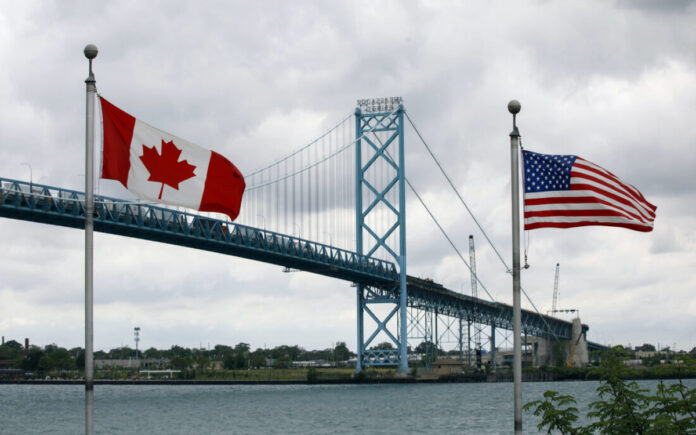Toronto: Canadian police and migrant aid organizations are gearing up for a possible surge of asylum-seekers fleeing the United States under President-elect Donald Trump. This comes at a time when Canada is already grappling with record levels of refugee claimants and has imposed limits on immigration.
Trump’s ascension to power this week is closely tied to his promise of executing one of the largest deportations in U.S. history, a move that could drive many individuals to seek refuge in Canada. In anticipation of this, Canadian authorities, including the Royal Canadian Mounted Police (RCMP), have been formulating contingency plans for several months.
“We knew a few months ago that we had to start prepping a contingency plan because if he comes into power, which now he will in a few months, it could drive illegal migration and irregular migration into Quebec and into Canada,” said RCMP Sergeant Charles Poirier in an interview on Thursday.
The worst-case scenario, Poirier explained, would involve a large number of people crossing the border daily, creating significant strain on resources. “Let’s say we had 100 people per day entering across the border, then it’s going to be hard because our officers will basically have to cover huge distances in order to arrest everyone.”
The possibility of large numbers of asylum-seekers attempting to cross into Canada mirrors a trend that began when Trump took office in 2017. Thousands of asylum-seekers entered Canada through unofficial crossings, mainly at Roxham Road near the Quebec-New York border, to file refugee claims. However, Canada and the U.S. expanded their bilateral agreement, now allowing the U.S. to turn back asylum-seekers trying to cross the 4,000-mile border except in specific cases.
This has forced asylum-seekers to find clandestine ways to cross into Canada, hiding for weeks before making a claim—a practice that has raised concerns among immigrant advocates, who view it as dangerous.
“When you don’t create legitimate pathways, or when you only create pathways where people have to do the impossible to receive safety, you know, unfortunately, people are going to try to do the impossible,” said Abdulla Daoud, director of The Refugee Centre in Montreal, which offers services to migrants.
The influx of asylum-seekers is expected to continue, and police are on high alert. According to Poirier, Canada is prepared to deploy additional officers, vehicles, and resources to patrol the border if necessary. “All eyes are on the border right now. We were on high alert a few days before the election, and we’ll probably remain on alert for the next coming weeks,” he said.
Canada is already dealing with unprecedented numbers of refugee claimants. In July, nearly 20,000 people filed refugee claims, setting a new monthly record. While the numbers have decreased slightly in September to about 16,400, they remain historically high, with over 250,000 claims still pending.
Also Read | China’s Consumer Prices Rise Slow to 0.3% Year-on-Year in October
Loly Rico, founder of Toronto’s FCJ Refugee Centre, expressed concerns about the potential impact of Trump’s presidency on Canada’s refugee situation. “Trump’s election is going to impact Canada,” she said. “We will start seeing more people crossing the border, appearing in cities, and looking for support.” Rico also expressed worries about what will happen as winter sets in, noting the tragic case of a family of four who froze to death attempting to cross near Emerson, Manitoba, in 2022.
Canada’s tightening border policies have inadvertently created opportunities for smugglers. People who previously paid to travel to the U.S. are now paying extra to reach Canada, either overland or by air, Rico said.
Also Read | North Korea Launches GPS Interference, South Korea Issues Urgent Warning
Daoud urged Canada to strengthen its asylum infrastructure to support the expected increase in claimants. “Unfortunately, until the government policy shifts in how they look at this particular issue, there’s going to be more of the same. We’re not going to be prepared, and it’s going to be politicized all over again,” he said.
Immigration Minister Marc Miller acknowledged the challenges posed by an influx of asylum-seekers, assuring that the government has plans in place, though specific details have not been disclosed. In a statement, Miller’s office said, “Canada’s immigration department will continue to prepare and anticipate all possible scenarios. Any approach taken will be first and foremost in the best interest of Canada and all those who live here.”



